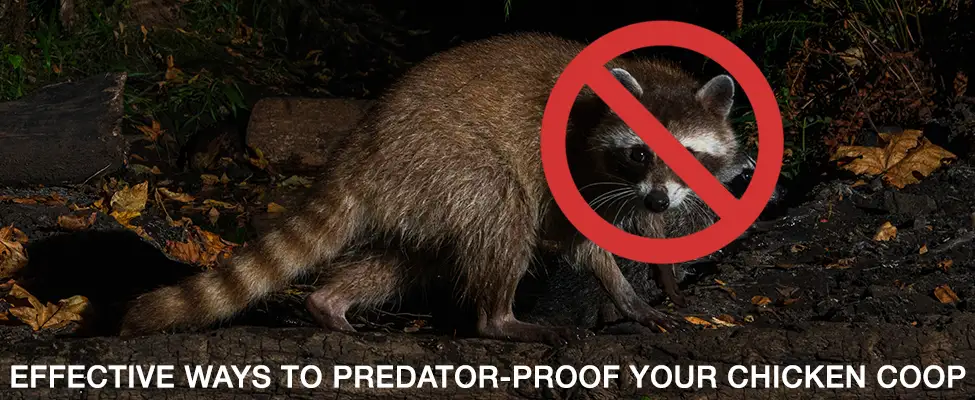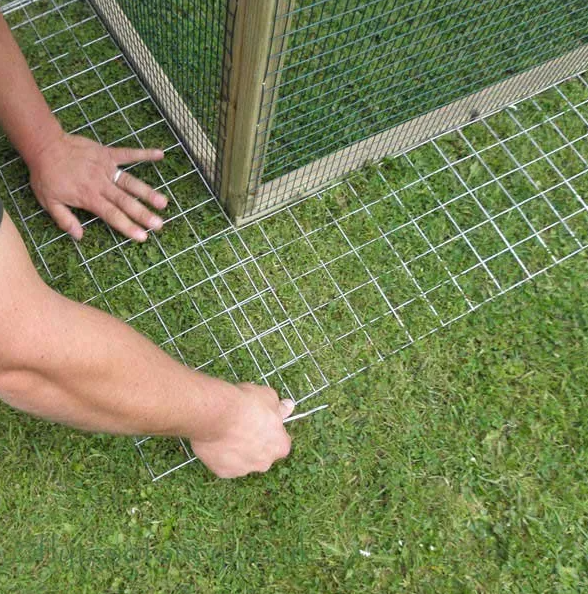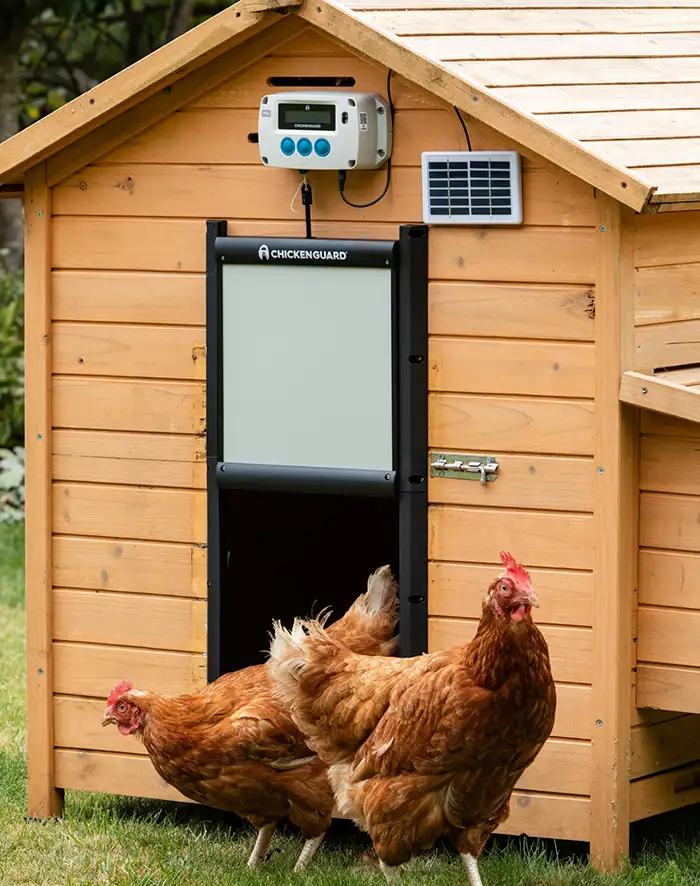Home » 5 effective ways to predator-proof your chicken coop
5 effective ways to predator-proof your chicken coop

Forget chicken and egg – when we first think about chicken keeping, the other thought that comes to mind are foxes. And raccoons, hawks… the list goes on
Whether you’re raising a few hens for fresh eggs or building a full backyard flock, keeping your chickens safe from predators is a top priority. It’s worth keeping in mind that whilst you can take steps to protect your birds, predators are simply following their instincts to survive! The good news is that you don’t need to build a steel fortress to protect your birds. With a few smart upgrades, you can create a secure and stress-free space for your flock to live their best chicken lives.
At ChickenGuard, we’ve seen a LOT of chicken coops (good and bad!). Here’s our five practical ways to predator-proof your chicken coop – including one simple upgrade that makes a big difference.
1. Reinforce your run with hardware cloth
Standard chicken wire may keep chickens in, but it won’t stop determined predators from getting in. Replace or reinforce any exposed areas with hardware cloth – a strong, welded mesh that’s far harder to chew or claw through.
Use ½-inch hardware cloth along the sides, over any ventilation gaps, and especially around the base of the coop and run. It’s worth burying it at least 12 inches underground in an L-shape to stop sly diggers like foxes and raccoons from tunneling underneath.
2. Install a predator apron
Predator aprons are simple but incredibly effective. They consist of a flat layer of mesh fencing that extends out around the perimeter of your coop and run. It prevents animals from digging in, as they’re unable to get through the wide barrier close to the surface.
Use galvanized hardware cloth and fasten it securely to the base of your setup. Cover it with soil or gravel for added durability (it also keeps it looking nice and tidy).

3. Make windows, vents and doors mission impossible
Predators are sneaky opportunists and will make it their personal FBI mission to find any weak point in your coop. That means even windows, vents and nesting box lids need to be locked down with predator-resistant latches or catches.
Avoid using lightweight hinges or slide bolts that raccoons can easily manipulate (yes, really!). Choose locking carabiners, barrel bolts, or padlocks for critical access points – and check them regularly for signs of tampering or wear.
4. Add motion-activated lights or alarms
It’s not really practical to do a nightly coop patrol so what’s the alternative? Many predators are human-shy or nocturnal, so using a scare tactic such as a loud sound or bright light can be enough to scare them away. Investing in a couple of motion-activated solar lights or alarms is inexpensive and easy to install, especially if your coop is far from your home.
Place them around key entry points or areas where you’ve noticed tracks or digging. Combined with secure fencing, they provide a powerful deterrent.
5. Install an automatic coop door
One of the simplest and smartest ways to protect your chickens at night is to install an ChickenGuard automatic coop door. It will completely change your chicken-owning game, allowing you to rest easy that your flock is safely locked in at dusk – whether you’re home or not.
ChickenGuard’s door openers are built to be tough, predator-proof, and totally hands-off. They feature:
- Light sensor and timer control so your coop opens and closes automatically
- Integrated locking mechanism that prevents animals from lifting the door
- Triple power options: battery, DC, or solar – so it works rain or shine
No more rushing out at sunset or worrying if you forgot to close the door. And no more early mornings to let the chooks out at sunrise. It’s peace of mind, built in.

Our final thought – layer your defences
Predator-proofing your chicken coop isn’t about a single fix – it’s about combining smart strategies to build multiple layers of protection. Reinforced fencing, secure entry points, and automatic systems all work together to keep your flock safe. Good luck!
